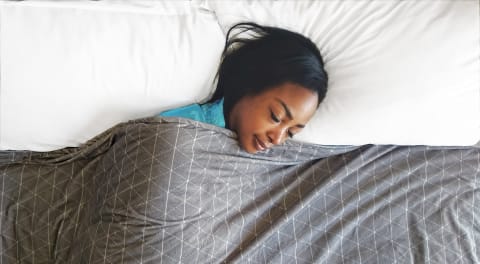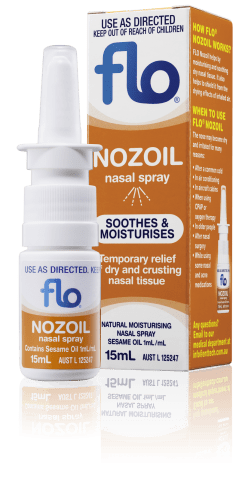Frequently Asked Questions
Sleep Apnoea
What is Sleep Apnoea?
Sleep Apnoea happens when a person’s upper airway is partially or completely blocked while they are asleep. The person’s breathing will periodically stop during an apnoea event which triggers your brain to wake up briefly, just enough for you to take a breath. Then you will fall back into sleep until your next apnoea event starts this cycle again. Most of the time, the person is unaware of the events happening but will report waking up feeling tired.
The Main types of Sleep Apnoea are:- Obstructive sleep apnoea (OSA) - most common type of sleep apnoea where there is full or partial (Hypopnea) upper airway blockage resulting in obstruction of airflow.
- Central sleep apnoea – more uncommon type of sleep apnoea where the airway is open, but no airflow due to lack of communication between brain and body to initiate a breath.
- Complex sleep apnoea syndrome – a mixture of obstructive sleep apnoea and central sleep apnoea
What are the common symptoms of Sleep Apnoea?
The most common symptom of Sleep Apnoea is loud snoring that usually is observed by your partner or family. Some of the other symptoms are:- Gasping or choking sounds while sleeping
- Pauses in breathing while sleeping
- Tossing and Turning
- Waking up gasping or choking
- Tiredness and feeling unrefreshed after sleep
- Poor concentration
- Morning headaches
- Depressed mood
- Night sweats
- Weight gain
- Forgetfulness
- Sexual dysfunction
- Frequent urination at night
What are the common effects of Sleep Apnoea?
When you have Sleep Apnoea, whether it is mild, moderate or severe, there will be effects on your body from having this disturbed sleep cycle. Some of the common noticeable effects are:- Daytime sleepiness
- Tiredness
- Loss of memory
- Headaches
- Moodiness/Irritability
- Increased chances of motor vehicle or workplace accidents
What are the common causes of Sleep Apnoea?
Airway blockages can occur from multiple factors such as:- Anatomical Characteristics: The size and positioning of a person’s neck, jaw, tongue, tonsils and other tissues near the back of the throat may directly affect airflow into the upper airways
- Obesity: The weight of your neck will collapse the airway. Obesity also contributes to the anatomical narrowing of the airway.
- Sleeping on your back: This position makes it easier for your jaw to fall back and collapse the airway.
- Muscle Relaxation: If the muscles around your airway relaxes too much during sleep, it will cause the airway to narrow and obstruct. Having sedative medications or alcohol will make it easier for airway to become obstructed as it contributes to muscle relaxation.
- Hormone Abnormalities: Hormone conditions such as Hypothyroidism may increase the risk of airway obstruction by causing swelling of the tissues near the airway.
Why do I need to treat Sleep Apnoea?
Most people are aware that healthy diets and exercise are important in keeping good health. However, the quality of sleep is probably one of the most important factor that often gets overlooked.
If left untreated, it can contribute to other more serious long-term health risks such as:- Heart disease
- Diabetes
- High blood pressure
- Weakened immune system
- Decreased sexual desire and possible impotence in men
- High LDL cholesterol levels
- High blood sugar
What are the treatment options for Sleep Apnoea?
Treatment options vary from person to person depending on underlying cause of your sleep apnoea. It is always recommended for you to speak to your attending physician or specialist physician. Some of the common treatments are:
- CPAP (Continuous Positive Airways Pressure): This is generally the most common and effective way of treating obstructive sleep apnoea. It involves the use of a CPAP machine and mask during sleep which gently increases air pressure to help you keep your upper airway open. In doing so, it helps with reducing sleep apnoea event occurrences.
- Oral Appliance Therapy: These include specially made dental plates that you wear while sleeping to push you lower jaw forward and open up your upper airway. These appliances are usually referred to as Mandibular Advancement Splints (MAS). This treatment is not suitable for all sleep apnoea patients therefore it is best discussed with a sleep specialist who will refer you to a trained dentist.
- Surgery: This is a possible treatment for cases of obstructive sleep apnoea caused by a blockage of some part of the nose or throat. This treatment is not suitable for all sleep apnoea patients therefore it is best discussed with an ENT surgeon.
- Weight Loss: For patients that are obese, losing weight is often recommended. This is not a solution to cure obstructive sleep apnoea but it does usually improve snoring episodes and the severity of sleep apnoea. This can also assist the other methods of treatment to work more effectively.
- Body Positioning Devices: These devices are typically worn around the neck or chest and will vibrate when in supine position to alert you to turn to your side. This will work for patients who only have sleep apnoea events whilst sleeping on their back and not suitable for others with events regardless of sleeping position.
What should I do if I think I have Sleep Apnoea?
If you think you may suffer from sleep apnoea based on your symptoms, do not stress as there are diagnostic and treatment pathways available. As with most health issues, the best place to start will be visiting your general practitioner who may recommend a sleep study test depending on their initial assessment of your symptoms.
A sleep study is used to diagnose sleep disorders such as Sleep Apnoea and it records your brain waves, blood oxygen saturation, heart rate, breathing pattern and eye and leg movements during your sleep to provide an overall picture of your sleep quality.
Can I buy a machine without a Sleep Study?
It is not entirely necessary to complete a sleep study prior to purchasing a CPAP machine as long as you are purchasing an Automatic machine that can adjust to your pressure needs. However, we do strongly recommend for individuals to undertake a sleep study as it would provide a much more details understanding of your sleep patterns and any other underlying concerns.
I had a terrible experience in the sleep lab, is CPAP right for me?
It is not uncommon for patients to complain of an uncomfortable experience during their sleep study for a couple of reasons:- Under observation by a stranger
- Sleeping in a foreign environment
- Discomfort from wire attachments
- Constant fluctuation and increase of air pressure for titration purposes
During CPAP treatment, you will be in the comfort of your own home with only one mask that is in direct contact with your face. The machine’s pressure is usually either adjusted to suit your therapy needs or it will only increase during the onset of a sleep apnoea event. Which means that the pressure will not typically fluctuate to a high and uncomfortable level. Added comfort settings such as the humidifier and heated tubing will also assist in a more pleasant therapy experience.
What is CPAP?
Continuous Positive Airway Pressure or CPAP is the most common and effective way of treating Sleep Apnoea. It is a device that delivers constant mild air pressure through a mask during your sleep. This ongoing positive pressure prevents your upper airway from collapsing and it enables you to breathe better during your sleep.What are the types of CPAP machines?
There are 3 main types of Sleep Apnoea machines (more commonly referred to as CPAP machines):- CPAP – This refers to a Fixed Pressure Sleep Apnoea machine that delivers a single constant airflow throughout the night to assist with treating obstruction events. The treatment pressure is usually pre-determined through a pressure titration test ordered by a sleep specialist.
- APAP – This refers to an Automatic Pressure Sleep Apnoea machine that will automatically vary the air pressure delivery throughout the night in response to the person’s needs. It will only increase the pressure during the onset of an obstruction event and hence can make your treatment more comfortable.
- BiPAP – This refers to a Bi-level Pressure Sleep Apnoea machine that delivers two alternating levels of pressurised air. The Inspiratory Positive Airway Pressure (IPAP) is higher to support a breath during inhalation. The Expiratory Positive Airway Pressure (EPAP) is a lower pressure that allows you to exhale comfortably whilst keeping your airways open. These are more advanced machines used by people suffering from more severe respiratory problems and can only be obtained via a prescription from a specialist.
Can I trial CPAP before I purchase?
If you are not sure whether or not CPAP treatment is effective for you, or whether or not you will be comfortable with the therapy, then this is an easy no-commitment solution for you to try it out before investing in your own machine.
We offer CPAP trials at a 4 weekly basis to help introduce you to therapy and also assist you with any fitting issues that may arise through our weekly consultations.
What does a CPAP trial involve?
The CPAP Clinic is able to arrange a CPAP rental program tailored to you. The rental program is a therapy orientated process which consists of undergoing treatment with a qualified clinician/ consultant. During the rental, all in clinic and telehealth consultations are free of charge where the consultant will be able to interpret your therapy results and help you optimise your CPAP treatment.
CPAP rental program are arranged by appointment only, therefore please contact us on 1300 76 29 39 if you are interested to find out more.
What are the side effects of using my CPAP machine and how to alleviate these effects?
Although CPAP therapy is widely known and proven to be one of the most effective methods of treating Sleep Apnoea, there may be some discomfort experienced while being on CPAP therapy. Some of the most common side effects are:- Skin Irritation: CPAP masks are fitted quite snuggly on the face and when worn repetitively, may cause some redness, rash or pressure sores on some patients. Using a memory foam mask, or using a mask that avoids these pressure points may help to alleviate some of the irritation.
- Discomfort: Wearing a CPAP mask can some time cause discomfort when trying to get to sleep as it can fell bulky and constrictive. Speak to your consultant regarding different types of masks so try and find one that is the most comfortable for you. Alternatively, there are special CPAP pillows with cut outs on the side to aid with sleeping whilst wearing a CPAP mask.
- Dry nose and mouth: Quite common side effect because there is a constant positive airway pressure blowing through your nose or mouth. Having a CPAP machine that has a heated humidifier and heated tubing system is beneficial as it can provide you with added moisture to the air you are breathing in.
- Mask leakage (into eyes or around the sides): If your CPAP mask does not fit properly or has not been cleaned well, it can cause leakage into your eyes or around the sides of the mask. This can cause eye irritation and be quite noisy throughout the night. Speak to your consultant regarding the mask fit and make sure you wash the mask cushion daily with gentle soap to remove oils and skin debris from the silicone.
- Aerophagia: This is the medical term for swallowing air and can occur in some patients resulting in gas and bloating. This is more prevalent in CPAP users who are mouth breathers who would, in their sleep, unconsciously gulp for air, thus causes the air to travel down the oesophagus to your stomach rather than down your airways. Speak to your consultant regarding the condition and proper mask fit. Drinking some warm water when you wake up and rubbing your stomach in a gentle circular motion will aid with passing gas naturally to alleviate the bloating.








